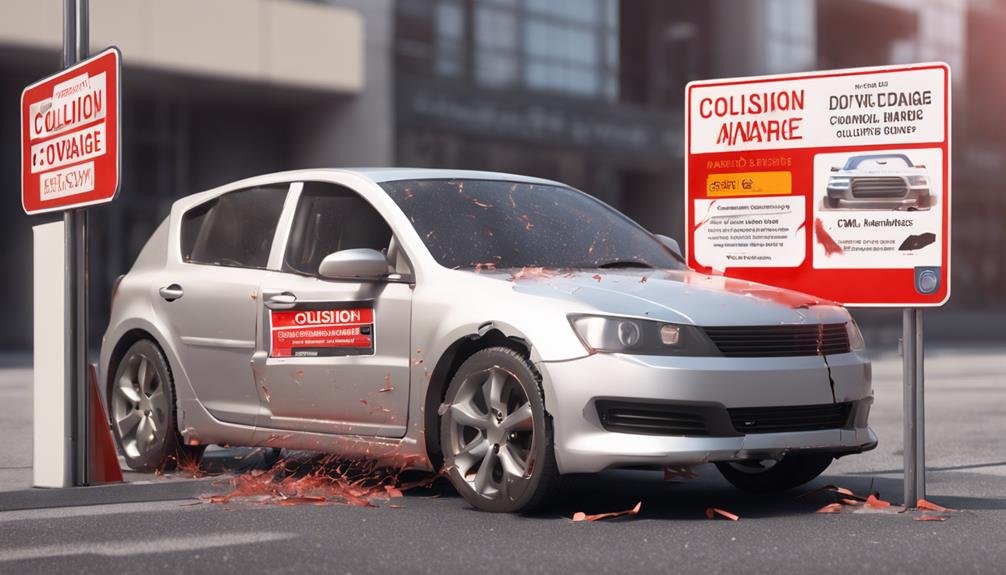What Is a Collision Damage Waiver (CDW)? Definition and Coverage
With a Collision Damage Waiver (CDW), you protect yourself from costly expenses for accidents or damages to your rented vehicle. CDW covers a range of issues such as accidents, vandalism, theft, fire, and even weather damage. It also includes towing costs and can prevent you from having to pay your personal car insurance deductible. Evaluating your coverage needs and the associated costs is vital when considering CDW. Understanding the claim process, rental requirements, and coverage inclusions will be key in making an informed decision about whether to opt for CDW or not.
Key Takeaways
- CDW covers damage to rented cars like accidents and theft.
- It includes towing costs and can save on personal insurance deductibles.
- CDW may exclude damage to other cars and bodily injuries.
- Evaluating coverage needs and costs is essential before opting for CDW.
- LDW differs by including loss-related damages such as theft or vandalism.
What Is Collision Damage Waiver (CDW)?
When considering renting a car, understanding Collision Damage Waiver (CDW) is essential for protecting yourself from potential financial liabilities in case of damage to the vehicle. CDW offers benefits like covering damage to the rented car, including accidents, vandalism, theft, fire, weather damage, and towing costs.
While CDW is an option, alternatives like relying on existing insurance or credit card coverage may be available. Adding CDW can increase the rental cost by $100 or more, especially for luxury vehicles. It can save you from paying your personal car insurance deductible in case of an accident.
Evaluating your coverage needs, risk tolerance, and weighing the cost of CDW against the protection it offers are vital when deciding on this additional layer of security.
Understanding CDW Coverage Details
Exploring the coverage details of Collision Damage Waiver (CDW) sheds light on the protection it offers for rented vehicles in various situations. When considering CDW coverage, keep in mind the following key aspects:
- Claim Process: Understand how to initiate a claim in the event of damage to the rental vehicle. Familiarize yourself with the necessary steps and documentation required for a smooth claims process.
- Rental Requirements: Pay attention to any specific rental requirements associated with CDW coverage. Make sure you meet all the criteria to benefit from the protection it provides.
- Coverage Inclusions: Be aware of what types of damages are covered by the CDW, such as accidents, vandalism, theft, fire, weather damage, and towing services.
- Additional Theft Protection: Some CDW policies may require an additional theft protection plan for thorough coverage.
Exclusions to Know About CDW
Understanding the exclusions of Collision Damage Waiver (CDW) is crucial for clarifying the limitations of coverage provided for rented vehicles. Common misconceptions include believing CDW covers damage to other cars or bodily injuries, theft of personal items, interior damage, lost keys, or exceptions like reckless driving.
It's crucial to recognize that CDW may not cover certain incidents or behaviors. Knowing these exclusions can help you avoid surprises and understand the full extent of protection offered by CDW.
If you're concerned about these limitations, exploring alternative options such as your existing insurance coverage or credit card protections could provide additional peace of mind and potentially save you money.
Evaluating the Cost of CDW
To determine the value of Collision Damage Waiver (CDW) for your rental, carefully assess the potential cost implications relative to your insurance coverage. When evaluating the cost of CDW, consider the following:
- Cost Analysis: Calculate the additional daily fee for CDW and estimate how it impacts your total rental cost.
- Insurance Comparison: Compare the coverage provided by CDW with your existing insurance policy to identify any overlaps or gaps.
- Vehicle Type Consideration: Recognize that CDW costs may vary based on the type of car you're renting.
- Risk Assessment: Evaluate your risk tolerance and the likelihood of needing CDW protection based on your driving habits and the rental location.
Comparing CDW and LDW
When comparing Collision Damage Waiver (CDW) and Loss Damage Waiver (LDW), it's important to understand the distinct coverage each option provides for rental car protection. CDW focuses on covering damage resulting from collisions, such as accidents with other vehicles or objects, while LDW expands this coverage to include loss-related damages like theft or vandalism.
While CDW primarily deals with collision-related incidents, LDW offers a broader scope by encompassing loss scenarios. When deciding between the two, consider your rental car insurance needs and conduct an insurance comparison to determine which option aligns better with your risk tolerance and coverage requirements.
Understanding the differences between CDW and LDW is vital to ensure you select the most suitable rental car insurance for your travel needs.
Conclusion
To sum up, contemplating a Collision Damage Waiver for your upcoming car rental can offer invaluable peace of mind. With the potential to save you from costly repairs and headaches in the event of an accident, the decision to opt for CDW is a critical one.
So, ask yourself: is the added protection of CDW worth it to safeguard your wallet and guarantee a smooth rental experience?







